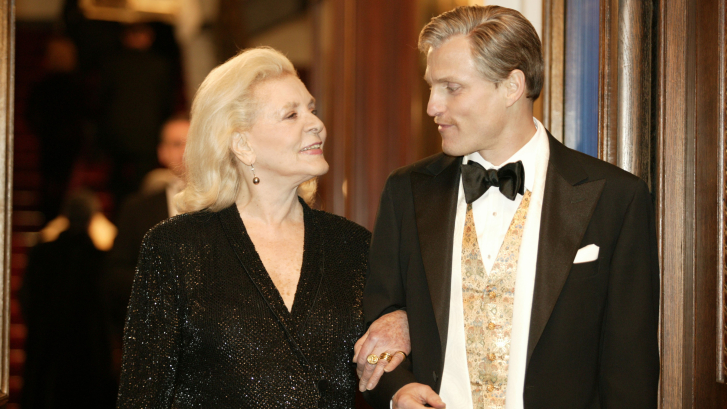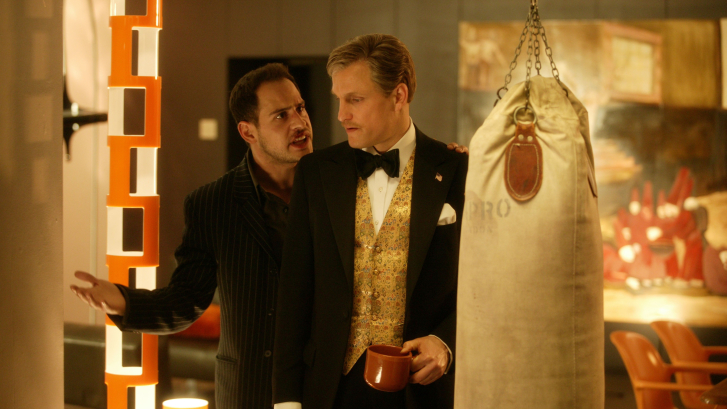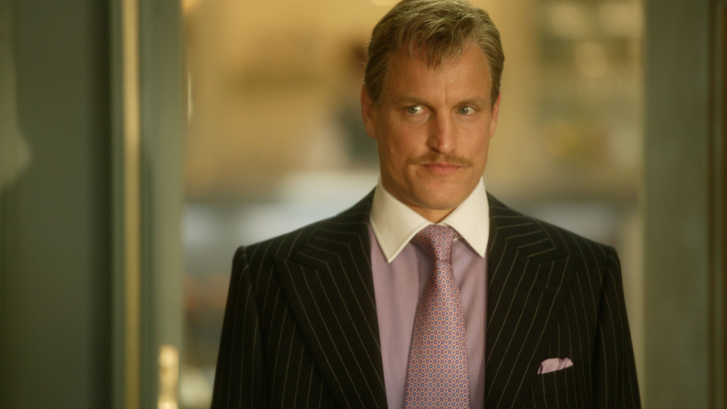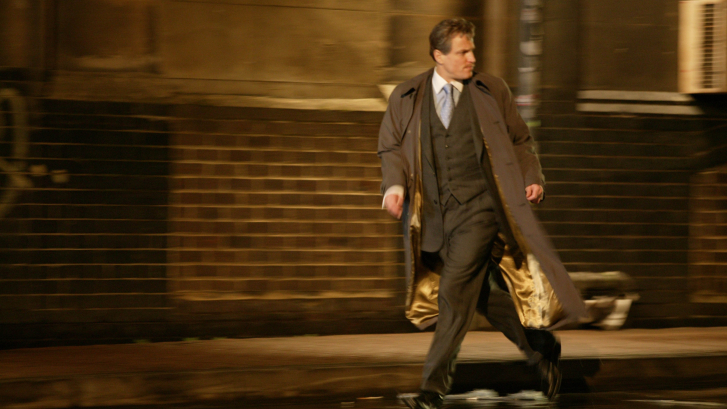The Walker

Carter Page III has an unsual job. He accompanies Washington DC's wellheeled ladies to the opera. These ladies' husbands have no desire to bother themselves with such high culture, which means that Carter Page III has a steady stream of work. On Wednesdays he meets his mature clients Lynn, Abby and Natalie and his young friend Emek for a game of canasta. One day, Lynn, who is married to a Liberal senator, discovers her lover, murdered. She turns to Carter for help. In order to protect Lynn, Carter claims that he found the corpse. His friendly gesture brings down an avalanche, for now arch-conservative state attorney Mungo Tenant is on the case and promptly pins the murder on to Lynn and Carter. All of a sudden, Carter, who is himself the son of an influential politician, finds himself embroiled in a web of intrigue, allegations and rumour from which there is no escape. The man who has always dubbed himself the black sheep of the family and sees himself as rather superficial now finds himself obliged to take on the good fight - more so when his friends begin to turn their backs on him. Carter and Emek have to make use of all their contacts in order to find out who is behind the campaign. In the end, Carter finds a way to solve his predicament, but the price is just too high.
>>> Press Conference & Red Carpet Video Streaming
>>> Watch film clips on IMDb
details
-
Runtime
107 min -
Country
United States, Great Britain -
Year of Presentation
2007 -
Year of Production
2007 -
Director
Paul Schrader -
Cast
Woody Harrelson, Kristin Scott Thomas, Lauren Bacall, Ned Beatty, Moritz Bleibtreu, Mary Beth Hurt, Lily Tomlin, Willem Dafoe, William Hope, Geff Francis, Steven Hartley, Garrick Hagon, Michael J. Reynolds, Allen Lidkey, Stewart Alexander, Andres Williams, Jason Durran, Marcello Cabezas -
Production Company
Kintop Pictures -
Berlinale Section
out of competition -
Berlinale Category
Feature Film
pictures from the movie
Biography Paul Schrader
Although his name is often linked to that of the "movie brat" generation (Steven Spielberg, Martin Scorsese, Francis Ford Coppola, George Lucas, Brian De Palma, etc.) Paul Schrader's background couldn't have been more different than theirs. His strict Calvinist parents refused to allow him to see a film until he was 18. Although he more than made up for lost time when studying at Calvin College, Columbia University and UCLA's graduate film program, his influences were far removed from those of his contemporaries--Robert Bresson, Yasujirô Ozu and Carl Theodor Dreyer (about whom he wrote a book, "Transcendental Style in Film") rather than Saturday-morning serials. After a period as a film critic (and protégé of Pauline Kael), he began writing screenplays, hitting the jackpot when he and his brother, Leonard Schrader (a Japanese expert), were paid the then-record sum of $325,000, thus establishing his reputation as one of Hollywood's top screenwriters, which was consolidated when Martin Scorsese filmed Schrader's script Taxi Driver (1976), written in the early 1970s during a bout of drinking and depression. The success of the film allowed Schrader to start directing his own films, which have been notable for their willingness to take stylistic and thematic risks while still working squarely within the Hollywood system. The most original of his films (which he and many others regard as his best) was the Japanese co-production Mishima - Ein Leben in vier Kapiteln (1985).
- IMDb Mini Biography By: Michael Brooke <michael@everyman.demon.co.uk> (qv's & corrections by A. Nonymous)


